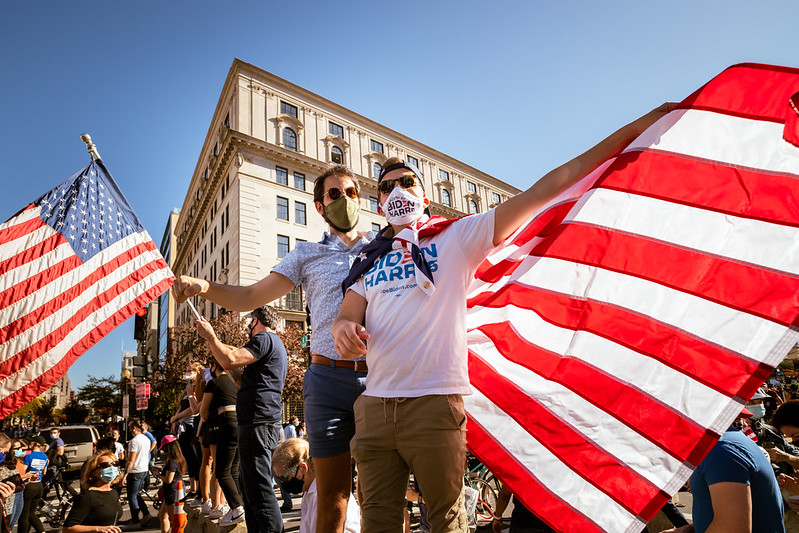U.S. states make progress on ending “war on drugs”
In a vote running parallel to the presidential election, Americans vote for the decriminalization of marijuana and other substances

In referendums running parallel to the presidential election, voters from six U.S. states guaranteed at the ballot box on Tuesday, November 3, significant progress that could help put an end to the War on Drugs.
Five states – Arizona, South Dakota, New Jersey, Montana and Mississippi – approved the legalization of marijuana for recreational or medical purposes, ensuring that at least a third of the country’s population have legal access to the substance.
However, Oregon stood out for becoming the first state to decriminalize the possession and personal use of all drugs. Anyone caught with small amounts of cocaine, heroin, LSD or methamphetamine, among others, will not be arrested or prosecuted, but instead referred to the health services. The experiment is inspired by Portugal, which took this same path in 2000.
“Decriminalizing drug use means looking at the issue from a public health perspective and not from a criminal perspective. The ideology of the so-called ‘War on Drugs’ after all these years has left only a trail of people who are either dead, marginalized or relegated to overcrowded prisons,” said Henrique Apolinário, a lawyer from the Program to Combat Institutional Violence at Conectas.
As a result of this voting outcome, 15 out of the 50 U.S. states now permit the recreational use of marijuana and 35 states allow the medical use of the drug. It is noteworthy that a large number of conservative states have introduced policies to decriminalize cannabis.
Progress was also made voting for prosecutors who campaigned on a platform of reducing the harassment of people arrested with small amounts of drugs – like in Austin – or increasing the oversight of police action, in places like San Diego and Minneapolis.
Brazil’s turn
In Brazil, the main debate on the decriminalization of drug possession for personal use has been stalled in the Supreme Court since 2015.
In October 2019, the then president of the court, Justice Dias Toffoli, decided once again to postpone the judgment, which had been scheduled for the beginning of November but was removed from the agenda to make way for the case on imprisonment after loss of first appeal. Three of the eleven justices have already voted in favor of a Special Appeal submitted by the São Paulo Public Defender’s Office calling for decriminalization, although there is no consensus on which substances should be included.
Conectas, the Brazilian Drug Policy Platform, ITTC (Land, Labor and Citizenship Institute), Pastoral Carcerária (the Catholic Church’s prisoner outreach service) and the Sou da Paz Institute, among other organizations involved with human rights, are “amici curiae” – institutions accepted to contribute with technical information in court rulings – in the case and they have explained the recent advances on the topic around the world, as well as the impacts of the criminalization of the black population in Brazil.
The organizations argue that Law 11,343 of 2006 is another example of a law that reflects the ideology of the so-called “war on drugs”.
Since the introduction of the law, the number of people imprisoned for drug-related crimes has risen more than 500% – the majority are black and poor – and it is the main reason why Brazil has the world’s third largest prison population.
The figures are particularly alarming among women. Between 2006 and 2019, the number of women in prison rose from 17,216 to 37,197, an increase of 116%.
Criminalization denies access to people who use drugs for medical purposes. This year, ANVISA (National Health Regulatory Agency) has come under strong pressure to obstruct scientific and medicinal access to cannabis. Similarly, Brazil has realigned itself with conservative countries in the UN to prevent greater access to the plant for research, as suggested by the WHO.
“The option for criminalization keeps drug users away from social and health services, increasing the risks of problematic use,” explained Apolinário, “while at the same time giving the police broad powers to search for minute quantities of drugs, at the expense of the privacy and freedom of a large part of the population,” he concluded.


